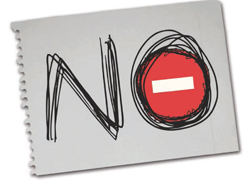Toddlers and Aggression

Your 12-month old toddler is playing alongside another child of the same age. Suddenly, she aggressively grabs a toy from the other child. Why did she do this? This is not her normal behaviour!
Normal Behaviour
Aggression in toddlers is normal. It’s often driven by impulse — not by the urge to hurt someone. Toddlers tend to fight over possessions; they know that they want something and they want it now! They can also learn to use aggression to gain attention. They imitate others and experiment with different behaviours. You may soon see that “No!” is a word your toddler loves to use to assert his growing independence.
So when does aggression usually happen? (Research shows that toddlers are most often aggressive after their parents — or other adults — have angered them.) It’s generally a real challenge for them to learn to control their emotions at this stage. Tantrums can also go hand-in-hand with their aggressive behaviour. If your child is like most other children, her physical aggression will increase with age. Generally, this peaks between two and three years of age. The good news is that somewhere around age three, you should see the frequency of your child’s physical aggression begin to decrease.
If you are concerned about your toddlers behaviour talk to your doctor.
Comfort, Play & Teach™
Strategies for Toddlers
When your child’s emotions turn into aggressive behaviour, help him learn how to channel those feelings into acceptable behaviour. Use Comfort, Play & Teach™ strategies to prevent or to respond to aggressive behaviour. This will help your toddler contain his emotions and get along with others.
Comfort
• Respond to your child’s aggression with words of acceptance for what she’s feeling. For example, “I know you’re angry.” Your
toddler needs to know someone understands her.
• Talk about the things that might be making your child feel the way she is feeling. For example, “I can see you’re angry because I won’t let you eat that. Let’s go over here and talk about it.” Your toddler needs to know that you care about her feelings and that you will help her cope with them.
• Be sure to notice and reward good behaviour. Your toddler needs positive reinforcement, as the life of a toddler can
be full of “no’s”.
Play
• Provide opportunities for your child to “pretend play” different emotions. Your toddler can use this time to experiment with and express different types and levels of emotions. Join in the play so you can act out different ways of handling various emotions. This type of play helps your child practice handling challenging situations without becoming aggressive.
• Have play dates with other children on a consistent basis, and be present. When you’re there, it helps your child deal more positively with any frustrating experiences that might lead to aggressive behaviour.
Teach
• Get involved right away. If your toddler hurts someone, he needs your help to understand what went wrong and how to repair the harm. Stay calm and avoid overreacting: Your reaction can actually increase your child’s aggression if he’s using it to gain attention.
• Look into your child’s eyes and speak calmly, but firmly. You might say, “No hitting, pushing or biting people!” and point out, “Look. You hurt him and he’s crying.” Young children need to learn the consequences of their aggression.
• Give a short explanation of what went wrong. As things calm down, it’s sometimes helpful to acknowledge your toddler’s feelings. For example, “I know you were angry, but what you did hurts. We don’t hurt people.”
• Encourage your toddler to use words to describe his emotions. Do this together through such things as pretend play or reading books. Language offers your child other choices for expressing his anger and frustration. During daily routines and activities, talk about your own emotions or those that your toddler may be feeling and expressing.
Positive Parenting
Here are some Positive Parenting strategies to help your baby cope with aggression:
• Be firm. It’s not helpful to be harsh, but it is necessary to be firm. Your toddler’s memory is still under construction, and she will test you to see if you’re consistent in many different settings.
• Set a good example. This is so important in handling your own anger and frustration. The example you set will play a big role in helping your child learn to manage his own behaviour.
• Provide lots of reminders about what is and isn’t acceptable behaviour. It can be frustrating to tell your child something over and over again, but she may need to be told many times before she fully understands you.
Used with permission from The Phoenix Centre for Children & Families. See www.welcometoparenting.com for information on pregnancy and parenting.



